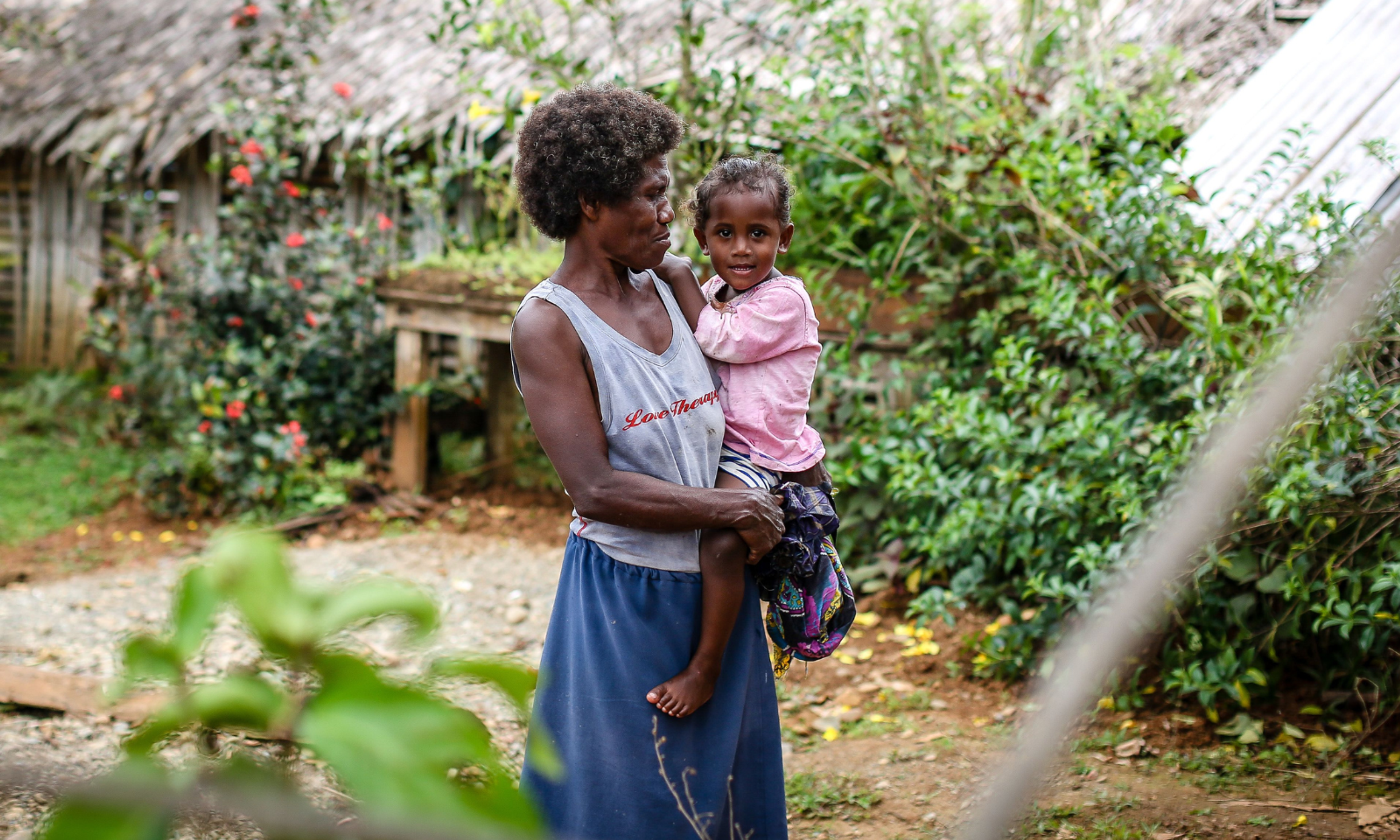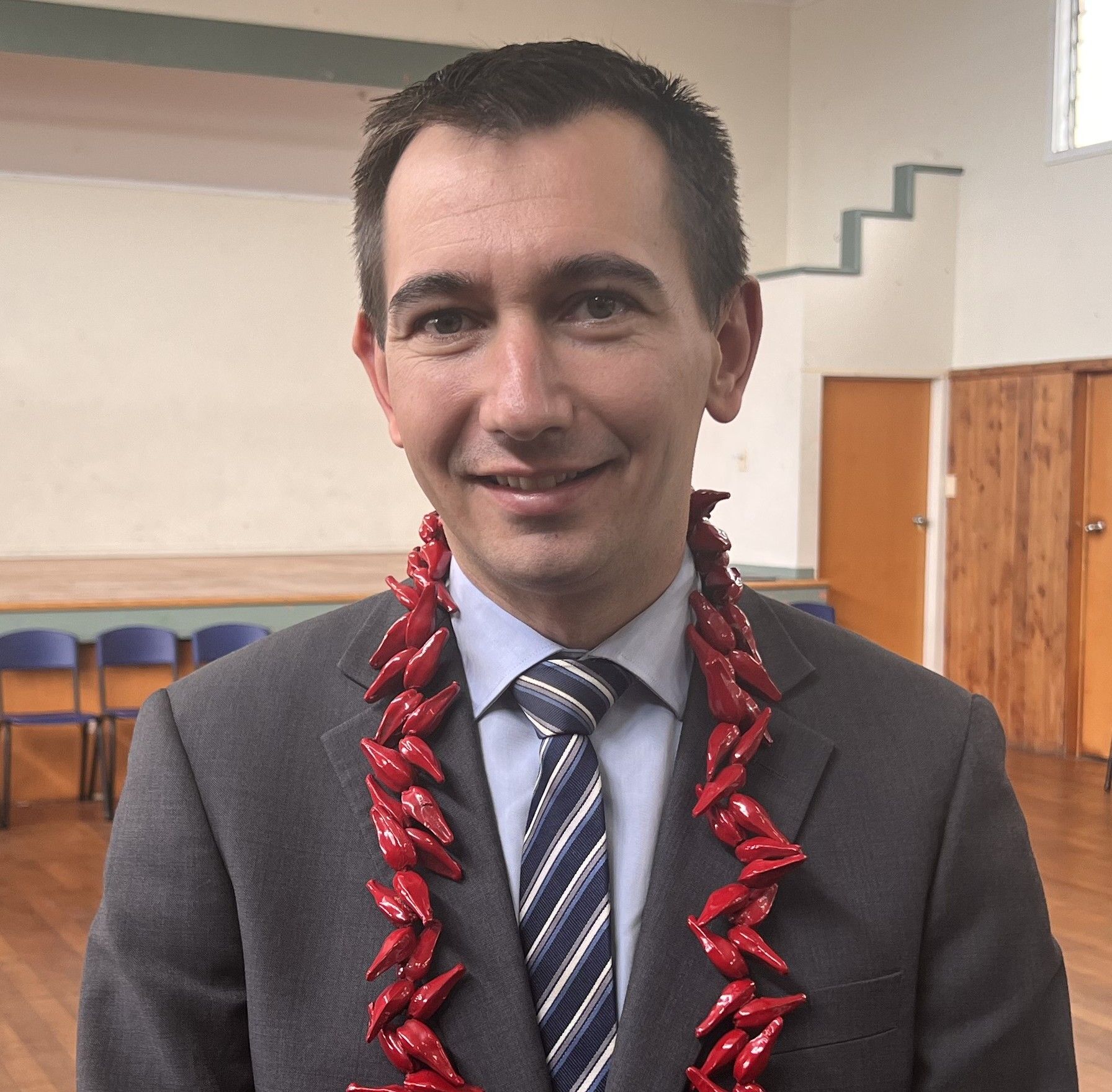

Leituala Fua Lefono and Aloese Lefono: Their story sparked a movement for Pacific families with Parkinson’s.
Photo/PMN News/Mary Afemata
‘Unsung hero’: The woman redefining Parkinson’s support for NZ's Pacific families
Aloese Lefono, a Sāmoan woman from South Auckland, has received the 2024 Pacific Health Service Award for her volunteer work in founding Aotearoa’s first Pasifika Parkinson’s support group.




$6b package set to transform Pacific communities in NZ

Former rugby star goes from tackles to tastings, bringing wine and rugby experience to NZ


Solomon Islands bylaw empowers chiefs to block child marriage


$6b package set to transform Pacific communities in NZ

Former rugby star goes from tackles to tastings, bringing wine and rugby experience to NZ
Aloese Lefono has been honoured after she used her experiences caring for her husband, who has Parkinson’s, to build a wider support network for Pacific families in Auckland.
The Sāmoan woman from South Auckland received national recognition for founding Aotearoa’s first Pacific-focused Parkinson’s support group.
What started with three people has now grown to more than 20 patients and carers who meet monthly in Papatoetoe.
“Seeing the pain in my husband, that’s how I see the pain in all of the other Parkinson’s people,” Lefono says.
Her advocacy is rooted in caring for her husband, Leituala Fua Lefono, who has lived with Parkinson’s for 27 years.
She says the journey has been one of faith, sacrifice and determination.
“Sometimes I nearly gave up. No funding, I was doing all the organising, plus caring for my husband,” she says. “But my husband would say, ‘Why are you giving up on that special service? You know those people, they are very happy’.”
Lefono says the Minister of Health Volunteer Award for Pacific Health Service is not hers alone, but shared with the community that walks alongside her.
Health Minister Simeon Brown presented the award on 1 May at the Papatoetoe church hall, where the group meets monthly.

Honouring Aloese Lefono at an intimate ceremony where Health Minister Simeon Brown presented her with the award. Photo/PMN News Mary Afemata
“You’ve seen beyond your own personal circumstances to see the needs of others,” Brown says.
“People like you don’t seek accolades, but it’s important to honour and thank you for everything you do.”
The idea for a support group was sparked when she discovered there were no meetings for Pacific people.
Lefono was told other Pacific patients existed, but they may not have attended mainstream meetings because the setting wasn’t culturally appropriate. The educator agreed to work with her.

From left, Aloese's son Tuava'a Lefono, Aloese Lefono and her husband Leituala Fua Lefono. Photo/PMN News Mary Afemata
The monthly gatherings offer more than just medical discussions. They create a culturally grounded connection through food, Pacific languages, shared faith, and lived experience.
Though Parkinson’s New Zealand funds the hall hire, the rest of the group’s operations rely on volunteers. Lefono coordinates the meetings, translates material, arranges transport, and runs a separate carers group.
“Caring for someone with Parkinson’s can be so isolating,” she says. “Our carers group meets too, we support each other.”
Christina Buchanan, a research genetic counsellor at Auckland City Hospital, says Lefono’s leadership has increased Pacific engagement in health research.

Minister Simeon Brown wears the ulafala he was gifted and presented by Aloese Lefono symbolises a lasting connection with Papatoetoe and the Pacific Parkinson’s community. Photo/PMN News Mary Afemata
After attending the group and working closely with Lefono, Buchanan referred Pacific patients directly.
Buchanan nominated Lefono for the award and says her work goes far beyond support.
“She doesn’t seek acknowledgement, but I think she deserves this acknowledgement,” she says.
Buchanan says the group has contributed to vital genetic research.

From left: Dr Christina Buchanan, who nominated Aloese Lefono for the award, Aloese Lefono, Health Minister Simeon Brown, and Dr Fuafiva Fa’alau. Photo/PMN News Mary Afemata
“Usually when people think about Parkinson’s, they think about an old white man... Here we had young, strong, Pacific people.”
In a pilot study of five Pacific patients under 50, all were found to have changes in the PINK1 gene, a rare result globally.
“Because this is a genetic form of Parkinson’s, I truly believe it’s going to be one of the types of Parkinson’s that we will cure first.”
Despite the group’s impact, Lefono says systemic support is still lacking.
Watch Aloese Lefono’s full interview below.
“We’ve been working in silence. But Parkinson’s is growing fast in our Pacific families. it’s time people knew,” she says.
“We need brochures in Pacific languages, awareness in churches and on the radio, and research that reflects our people. We’ve been doing the work - now we need the system to meet us.”
Local leaders have long recognised Lefono’s service. Ōtara-Papatoetoe Local Board chair Apulu Reece Autagavaia says the board was proud to support the group when they applied for funding to attend a Parkinson’s conference.
Harriet Pauga, Regional Director Pacific Health for Te Whatu Ora, describes Lefono as “one of our unsung heroes”.
“Her lived experience makes it so much more intimate and effective for those who are suffering and those who are caregiving,” Pauga says.
Remaining humble, Lefono credits God and her community.
“Without Him, I would not be able to do anything,” she says. “It’s not for me alone. It’s for all of us who’ve been walking this path together. To God be the glory.”
LDR is local body journalism co-funded by RNZ and NZ On Air.
